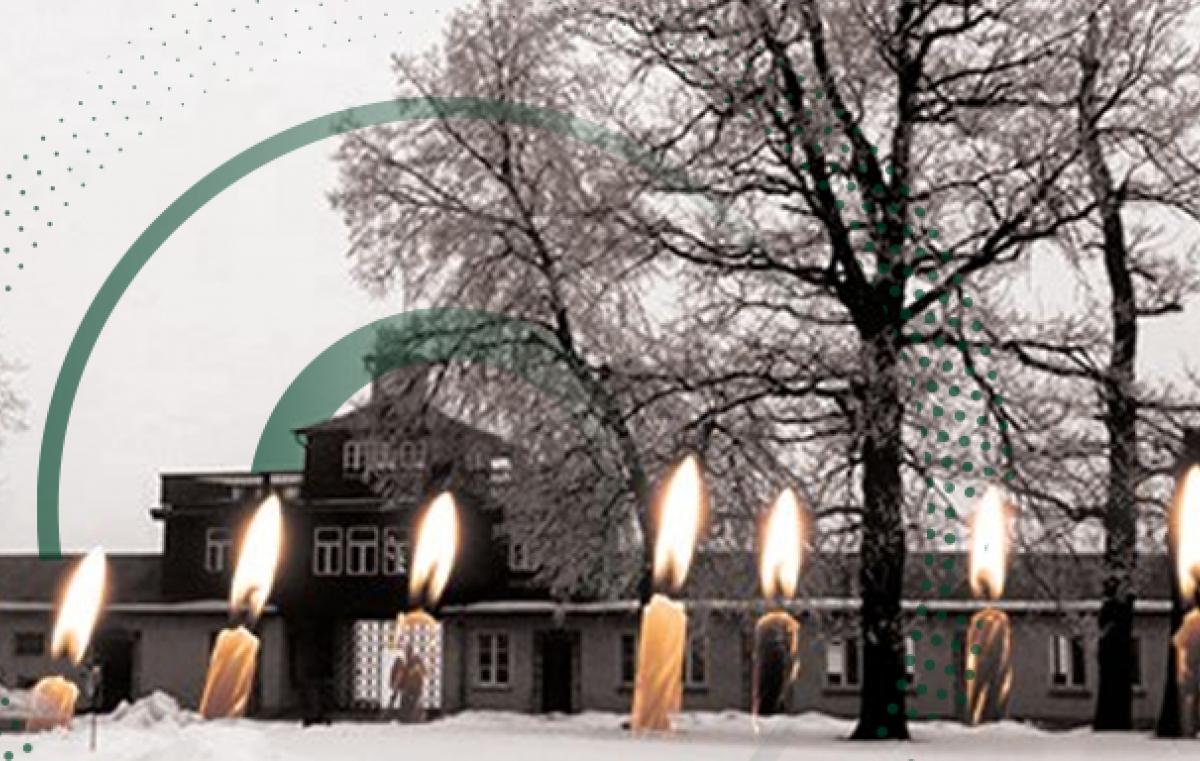Chanukah in Buchenwald 1939
Prof. Judith Tydor Baumel-Schwartz shares an inspiring story about how her father brought light and hope to the concentration camp

On Chanukah 1939 my father, Chaskel Tydor, was incarcerated in Buchenwald, having been arrested by the Gestapo at the war's outbreak. As the holiday approached, a number of Jewish prisoners spoke to him, hoping to arrange a clandestine candle lighting. My father turned to the blockeltester, a communist-Jewish prisoner named Erich Eisler, for assistance. He initially refused but my father appealed to his communist spirit, stating that by not doing so he was collaborating with the Nazis. Chanukah was not only a religious holiday but one of Jewish heroism, and finally the blockeltester understood that celebrating it would awaken the fighting conscience of the Jews in Buchenwald and act as a morally uplifting event, so he gave his tacit approval under several conditions.
"First," Eisler said, "you are responsible that the event will not be discovered by the guards. Second, none of the block functionaries will be involved. Third, the event has to be totally on your own initiative." If it works, Chaskel should let him know how it went. In any case, Eisler would make sure not to be in the block at that time.
Mobilizing the Jewish prisoners, they opened supply lines to the camp workshops secretly constructing a wooden menorah, organizing a tablecloth, candles, wax and apples for the celebration. They also set up a warning system if S.S. men should enter the area.
My father described the event in glowing terms. "The hall was filled to the top and people were still climbing on each other and through the window to get in." Before the candle lighting ceremony he spoke to them about Chanukah's history and significance. Just as the Jews who were slaves in Egypt felt hopeless and only a minority held out, thus the Jews in camp should consider themselves such a minority and know that they will hold out in the exile of Buchenwald. "This is the purpose of Chanukah and these lights," Chaskel concluded. "A hope in the darkness giving us courage and strength to survive this gezeirah (evil decree)."
As the inmates in the packed block stared at the flickering lights in the makeshift menorah, some with tears in their eyes, Eisler's face appeared at the doorway. The blockeltester looked around the room, taking in the prisoners' faces, the food, the menorah, and then he disappeared once again. For a moment, everyone in the room dreamed that they were free. It was a memorable Chanukah that they would recall for the rest of their lives and strengthen them in moments of despair.
"And so you see," my father said to me, "how a simple candle and apple can make the difference between life and death, physical or spiritual. It kept us going, it reminded us that we are human beings and Jews. It was a light in the darkness of Buchenwald."
An excerpt from the book “The Incredible Adventures of Buffalo Bill from Bochnia 68715: The Story of a Galician Jew – Persecution, Liberation, Transformation" by Prof. Judith Tydor Baumel-Schwartz, of the Israel and Golda Koschitzky Department of Jewish History and Contemporary Jewry at Bar-Ilan University. Director of the Arnold and Leona Finkler Institute of Holocaust Research, Prof. Baumel-Schwartz is the Abraham and Edita Spiegel Family Professor in Holocaust Research and the Rabbi Pynchas Brener Professor in Research on the Holocaust of European Jewry.